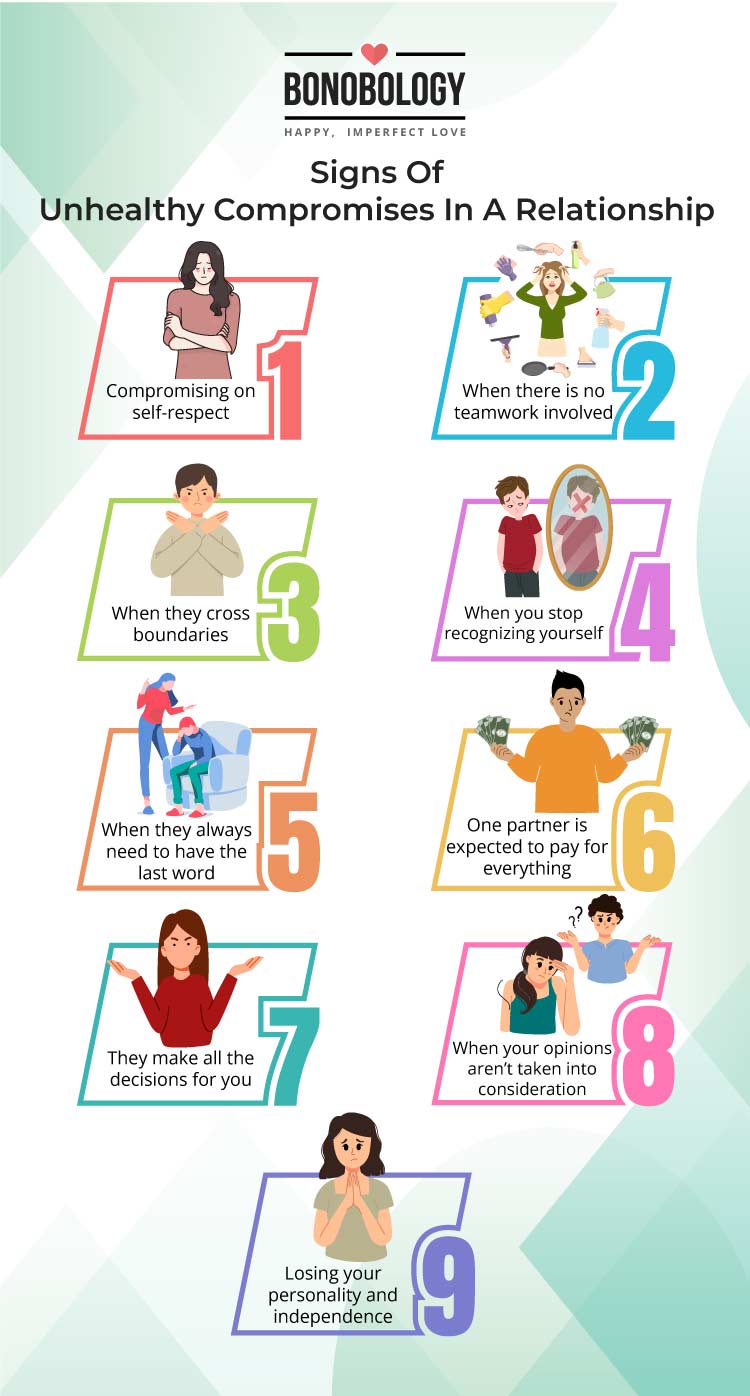Here are 13 important reasons why you should compromise with your partner and why it helps strengthen your bond. 1. Trust. One of the reasons that compromise between two partners in a relationship is so key is that it helps build the trust between each other. Trust is such a critical part of any relationship and without it, you won't have.. 2. Take it in turns. The approach here is to do something one person's way this time and the other person's way the next time. It's easy enough to get started, but the tricky bit is keeping things even and making sure that each partner gets a fair crack of the whip.

When 2 Worlds Collide The Power Of Compromise In Relationships

13 Values That You Can Compromise in A Relationship Relationship tips

5 Things You Should Never Compromise in a Relationship My Bold Life

Lack of Responsibility in Relationships or Marriages English

Managing Conflict in Relationships Communication Tips in 2022

Things To Never Compromise In Your Romantic Relationship. JustFun247

3 Compromises You SHOULD Make in a Relationship

When to Compromise in Your Relationship (and how to do it).

Compromise Relationship stages, Relationship, Strong relationship

11 Values That Experts Surprisingly Say You Can Compromise On In A

The Importance Of Compromise In Relationships YouTube

9 Compromises You Should Never Make In A Relationship The Thought

Knowing when to compromise and how can often cause a lot of hardships

Compromise May Actually Hurt Your Relationship, Here's What To Do

Compromise is not an act of weakness. It demonstrates that you care for

How Much Should You Compromise In A Relationship? HuffPost Australia Life

How To Compromise In A Relationship Lover Sphere

How to Compromise in a Relationship Dawn Wiggins Therapy

Quotes about Relationship compromise (35 quotes)

9 Signs Of Unhealthy Compromise In A Relationship
Compromise in relationships means respecting each other's needs and finding middle ground, which strengthens the bond between partners. Honest communication, making fair deals that satisfy both parties, and considering each other's feelings are key to successful compromising. Differences such as fights, money habits, travel preferences.. These critical elements often include trust, mutual respect, effective communication, empathy, and alignment in goals and values. Ironically, a willingness to compromise and collaborate towards shared objectives is often a relationship need itself. Additionally, thriving relationships are built on emotional support, intimacy, and affection.